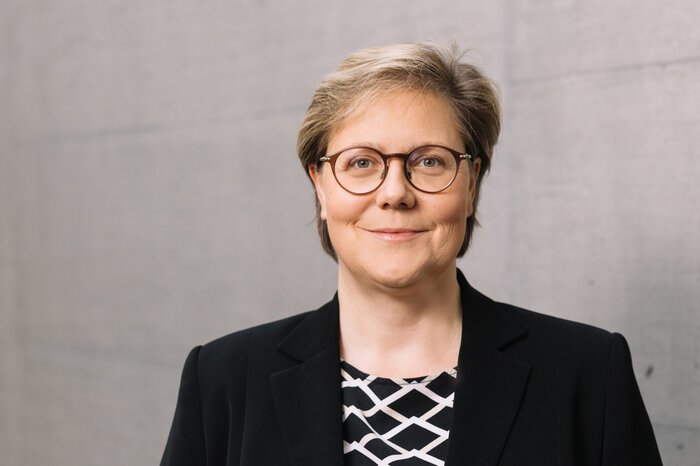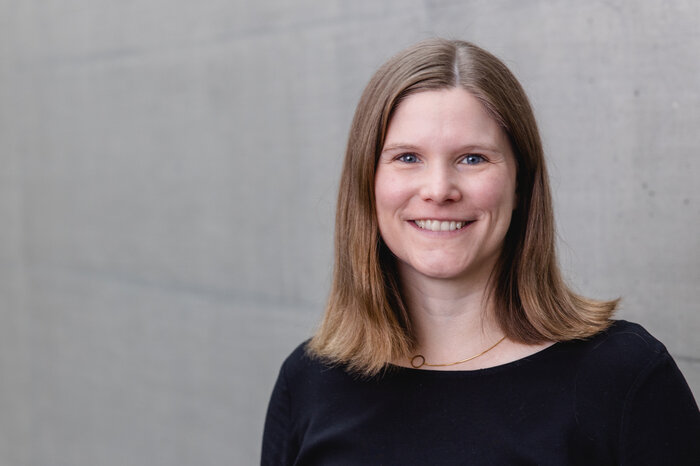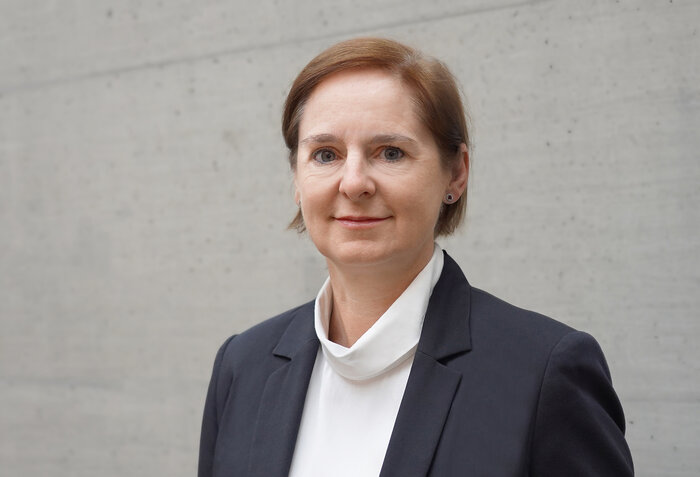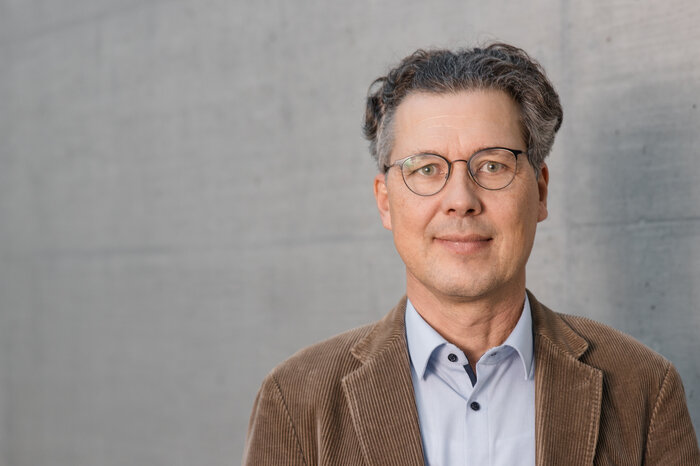University organization
The FHV was founded in November 1997. The sole shareholder of the non-profit limited company is the state of Vorarlberg.
The governing bodies of the company are the university management and the supervisory board. It was one of the first universities of applied sciences in Austria to be granted university of applied sciences status on October 1, 1999. The day-to-day business is characterized by entrepreneurial principles.
The organizational chart of the FHV
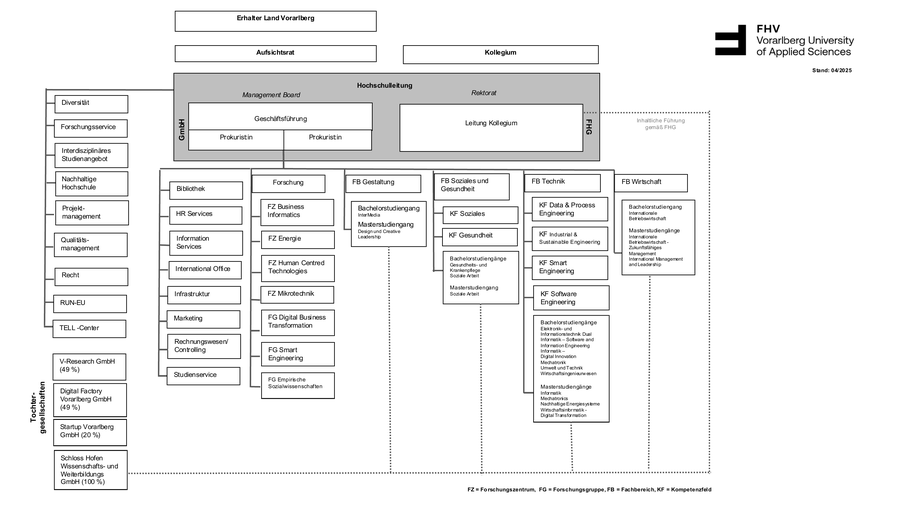
University Management
The FHV's university management is the highest governing body and plays a decisive role in shaping both the strategic and operational direction of the university. It comprises the managing director, the rector and two authorised signatories.
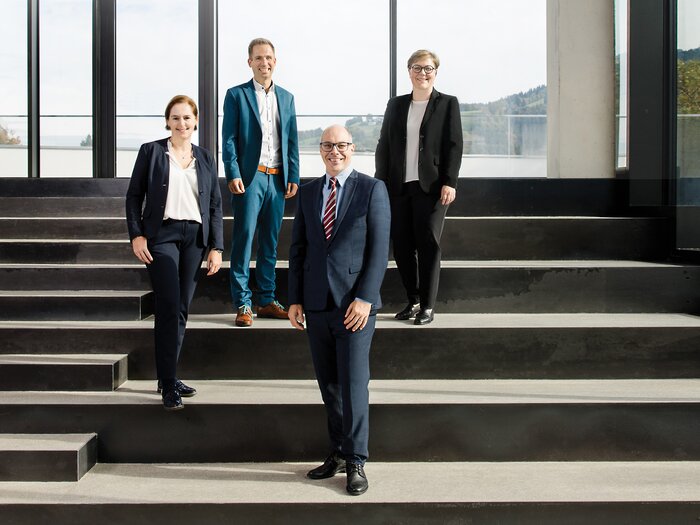
Executive Board and Management Board
The Executive Board assumes overall responsibility for FHV and its subsidiary. It is supported by two authorised signatories. Together, they form the Management Board of FHV.
Tasks of the Executive Board:
- Overall management of FHV
- Strategic goal development and business policy
- Budget and personnel responsibility
- Promotion of research and development
- Maintenance of regional and international cooperation
- Representation of the university internally and externally
Tasks of the Management Board:
- Advising the Executive Board, particularly on issues of strategic and operational development
- Management of defined specialist areas
Assistant to the Management / Sustainable University Unit
Project Management Unit
Rectorate
The Rectorate is responsible for content-related and organisational issues in the area of teaching. The Rectorate is supported in its decision-making by committees and working groups. In addition, the TELL Centre and Interdisciplinary Studies departments, which contribute to the further development of teaching, are assigned to the Rectorate.
Board of the FHV
The tasks and responsibilties of the board and the management of the board can be found in the Fachhochschulgesetz to view. You can also find the statutes and rules of procedure of the FHV here (in German).
The Board is responsible for the implementation and organization of teaching and examinations. In addition to the director and their deputy, it is made up of six representatives of the programme directors, six representatives of the teaching and research staff and four representatives of the students of the FHV degree programmes. These representatives on the Board are elected by the respective groups of people. The FHV Rector acts as the head of the board.
The Board meets at least seven times a year in ordinary sessions.
- Prof. (FH) Dipl.-Ing. Dr. techn. Regine Kadgien
- Arno Geiger, MSc, Bachelor Health Care and Nursing
- Dr. Margarita Köhl, MAS, Bachelor and Master InterMedia
- Mag. (FH) Bernd Schwendinger, PhD, Master International Business Administration - Sustainable Management
- Anna Knorr, BSc MSc MSc, Master Sustainable Energy Systems
- Dr. phil. Viktoria Reuschel, Dipl. Soz. Arb./Päd. (FH), Bachelor Social Work
- Mag. (FH) Karin Feurstein-Pichler, Bachelor Environment and Engineering/Industrial Engineering
- Dr.-Ing. Steffen Finck - Department of Engineering and Technology
- Prof. (FH) Dr. Markus Ilg - Department of Business and Management
- Michaela Burtscher, BSc MSc - Department of Social Work and Health
- Mag. Fabian Rebitzer - Research
- Mag. (FH) Andreas Künz - Research
- Prof. Dr. phil. Irene Müller - External lecturer
- Adrian Essig, BSc, Master's degree programme in Informatics
- Dominik Rogginer, BEd, Bachelor's degree Computer Science - Software and Information Engineering
- Nina Fessler, BEd - Master's degree programme in Social Work
- Stefanie Geri, Bachelor's degree programme in Social Work
- MMag. Miriam Maldoner, Bakk.
The Rules of Procedure and Statutes of the FHV consist of the following parts which are mainly in German.
Please find the statutes and rules of procedure of the FHV here (in German).
|
to point 9: Overview of degree programmes |
|||||||||||||||
|
|||||||||||||||
The best thing we can do
is being motivated to shape a common future
From the right and good universities
The FHV soon went its own way in this search for orientation. In addition to the development of the study programs, three ultimately very well-evaluated research centres were founded on the basis of a targeted increase in personnel.
The result is a forward-looking and future-oriented Code of Ethics, a catalog of values that is still highly topical in the university and higher education landscape today. It deals with...
- the principles of good scientific practice,
- the culture of organizational cooperation,
- our responsibility and our basic understanding towards the country and society
Importance today...
FHV - Vorarlberg University of Applied Sciences
University of Applied Sciences Board
Campus V, Hochschulstraße 1
6850 Dornbirn
+43 5572 792 1000
rektorat@fhv.at


